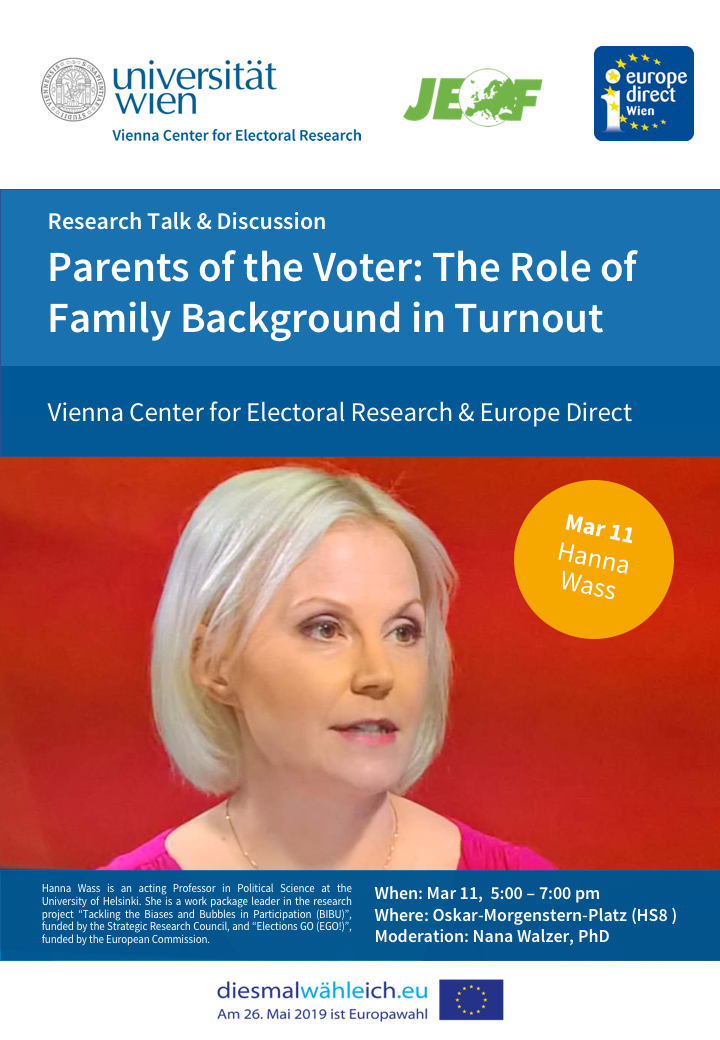Montag, 11. M�rz 2019, 17:00 - 19:00 iCal
Parents of the Voter
The Role of Family Background in Turnout
Vortrag von Professor Hanna Wass mit anschließender Diskussion (in englischer Sprache)
Oskar-Morgenstern-Platz 1, Hörsaal 8
Oskar-Morgenstern-Platz 1, 1090 Wien
Vortrag
Abstract: Family background matters in determining who participates in elections. Based on a unique data set that matches register data from the 1999 Finnish parliamentary elections with individual-level data provided by Statistics Finland for a sample of eighteen- to thirty-year-olds and their parents, Gidengil, Wass and Valaste (2016) showed that parental education affects the turnout of young adults, as predicted by status transmission theory. However, parental voting rather than the transmission of education from parent to child appears to be the more important mediating factor. There is also a strong association between parental voting and the turnout of their adult children that is independent of the effects of parental education, which lends support to social learning theory. In order to gain a comprehensive picture of the phenomenon, we also need to assess the overall magnitude of the parental effect and its various components. By employing a sibling design on an individual-level register-based dataset, Lahtinen, Erola and Wass (2019) studied the impact of an individual’s family and community background on their voting propensity in the 2015 Finnish parliamentary elections. The results showed that a quarter of the total variance in voter turnout among the cohort born between 1980 and 1989 is shared between siblings. Considering the dichotomous nature of the turnout variable, this implies a strong effect of background, only slightly weaker than of education, when dichotomized. Parental socioeconomic position and voting, in turn, are equally important factors by explaining thirty per cent of this shared part of the likelihood of voting. Mothers and fathers have roughly equal contributions. The results suggest that future studies of inter-generational effects in political participation, whenever possible, should use information from both maternal and fraternal characteristics and multiple indicators of parental socioeconomic position simultaneously. In sum, voting propensity is strongly influenced by factors beyond an individual’s own control, which is problematic for the function of inclusive democracy and the equality of opportunity.
The event has been organised by the Vienna Center for Electoral Reseach (VieCER) in cooperation with Europe Direct. Please visit the website of the event to sign up.
Zur Webseite der Veranstaltung
Veranstalter
Vienna Center for Electoral Research (VieCER)
Um Anmeldung wird gebeten
Kontakt
Julia Partheymüller
Vienna Center for Electoral Research (VieCER)
+43-1-4277-64201
julia.partheymueller@univie.ac.at
Erstellt am Donnerstag, 07. M�rz 2019, 15:52
Letzte Änderung am Montag, 11. M�rz 2019, 08:49

